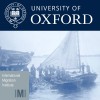THEMIS: Dis-locating the local: A study of the migrants originating from the Indian enclaves
Borders divide nations and with it, it also divides localities irrespective of class and religion. The partition of India happened in two folds:- firstly with Pakistan and secondly with Bangladesh. In this entire process of drawing and re- drawing of borders the residue, in this entire process, are the inhabitants of borders. This has been a similar experience in case of all those who have been uprooted due to war and have been displaced internally due to various reasons. The Radcliffe Commission's ‘Blunder Line', demarcated the boundary line between India and Pakistan-East and West Pakistan separately. It gave rise to a number of boundary disputes about the adversarial possession of enclaves. The major bone of contention are the 106 enclaves (locally known as ‘chits') of India in having a total area of 20,957.07 acres situated within Bangladesh (erstwhile East Pakistan).
This paper is an attempt to find answers to the big question of how and what motivated the inhabitants of the Enclave region to migrate and how the actual migration cycle took place. Based on unstructured interviews and mixed sampling techniques it traces the experiences of these migrants and there four decades of struggle to stay in India, mostly without legal citizenship in the two bordering districts of West Bengal:- Darjeeling and Coochbehar. Set on the backdrop of partition, the experience of travelling back to the mainland as a complete "alien" makes the journey different and the settling process sets them apart from the rest of the migration taking place in the country.




